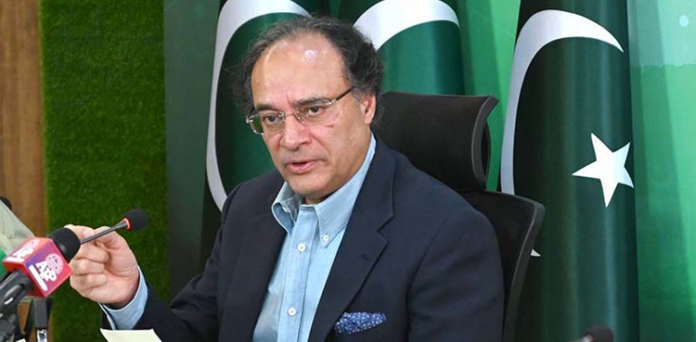Pakistan’s Finance Minister Senator Muhammad Aurangzeb on Friday underscored the government’s resolve to build vibrant and inclusive capital markets, calling them central to financing economic expansion and supporting the country’s reform programme.
Chairing the inaugural session of the Capital Market Development Council (CMDC), the minister said a modern and investor-friendly market ecosystem is essential for widening access to finance, promoting savings, and strengthening long-term economic resilience.
The meeting brought together senior representatives from key financial institutions and regulators, including the Securities and Exchange Commission of Pakistan (SECP), State Bank of Pakistan (SBP), Pakistan Banks Association (PBA), Pakistan Stock Exchange (PSX), Central Depository Company (CDC), National Clearing Company (NCCPL), Pakistan Business Council (PBC), and the Finance Division.
The Council reviewed its Terms of Reference and the broader roadmap for market reform, stressing the need to align Pakistan’s structures with global best practices. Discussions centred on four priority areas: boosting participation of retail and institutional investors; diversifying investment products; improving facilitation for intermediaries such as brokers, banks and mutual funds; and creating incentives for issuers and investors, including options for cross-border listings and wider market integration.
Participants also assessed requirements for technology alignment, regulatory modernization, and measures to encourage companies to raise financing through both debt and equity markets. Emphasis was placed on building high-liquidity and transparent price-discovery mechanisms to strengthen the contribution of capital markets to economic growth.
Aurangzeb noted that ongoing structural reforms are already improving market performance but said more needs to be done to expand the use of debt capital markets. He urged the Council to remove barriers that limit private-sector participation and highlighted the capital market’s role in efficiently connecting savers with issuers.
Regulatory, taxation, and incentive frameworks were also reviewed. The minister directed the Tax Policy Office, SBP, SECP, Debt Management Office, and the Finance Division to jointly examine capital-market taxation, issuer incentives, and policies that can support product development and increase listings. He stressed that compliant and transparent companies should receive better incentives.
The chair further instructed the Council to integrate the government’s recently announced three-tier Digitization Initiative into the capital market development plan.
It was agreed that dedicated working groups would prepare Key Performance Indicators and action plans within two weeks, with quarterly reporting and meetings scheduled to track progress. According to officials, the initiative aims to build a dynamic, flexible, and high-liquidity capital market capable of directing savings into productive investment and reinforcing financial stability.
























